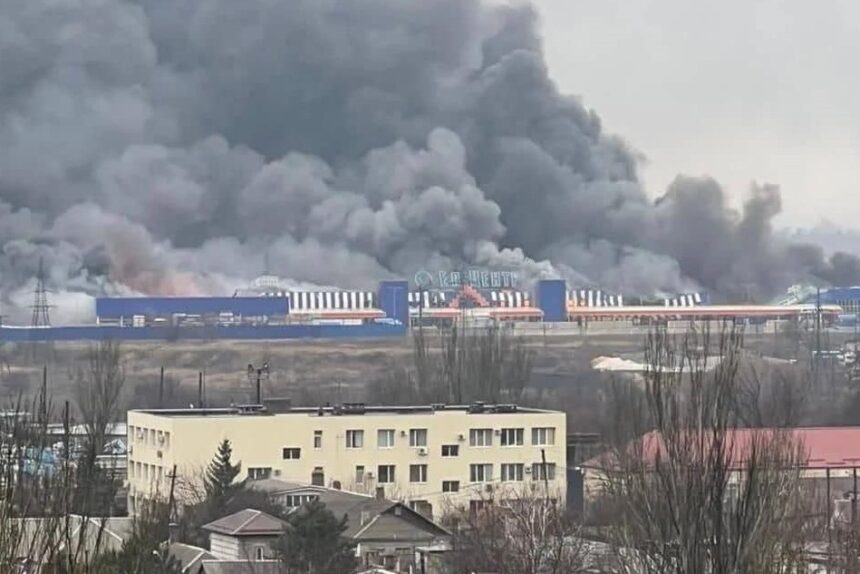As the war in Ukraine enters its 12th month, the time has come to make an assessment of its course thus far, its likely course in the future, and its broader geostrategic consequences.
1. The “collective West,” led by four successive U.S. administrations and actively engaged in expanding into Ukraine since before the 2004 Orange Revolution, successfully forced Russian President Vladimir Putin’s hand in February 2022. The scenario is broadly reminiscent of Otto von Bismarck’s intricate trap for Napoleon III, in July 1870, which resulted in a war that France started but Prussia willed. Russia started the war in Ukraine, but the U.S. willed it to happen.
2. Russia’s initial attack on five fronts—towards Kiev in two directions, and towards Kharkiv, Mariupol and Kherson—with less than 150,000 front-line combatants, was devoid of strategic sense. It violated the key Clausewitzian principle: seek decisive engagement focused on a clearly defined Schwerpunkt (meaning “weight, or focus, of effort”) and aiming at the destruction or neutralization of the enemy. This conceptual failure was aggravated by the patent shortcomings of the Russian army.
3. Russia’s flawed strategic design was likely due to Putin’s speculation that he might have a fifth column inside Ukraine, as evidenced in his call on the second day of the “special operation” (Feb. 25) for the Ukrainian military to depose the Kiev government. His misjudgment was likely due to faulty intelligence, the result of a successful Western secret-service operation designed to encourage Putin’s inner circle to present him with an unrealistically rosy assessment.
4. Western sanctions have failed to degrade Russia’s economy. The European Union has agreed on its 10th package of measures, but some of them have resulted in a disproportionate cost to its own economies, most notably in the industrial sectors of Germany and Italy. On the other hand, there has been no decline in Russia’s revenues from oil and gas sales, primarily to India and China.
5. The war in Ukraine will be decided on the battlefield, not in diplomatic negotiations. At the moment, neither side has an incentive to negotiate in good faith, let alone to make major concessions. The conflict has become existential for both sides, but Russia’s huge untapped resources make it unlikely that Ukraine can “win” in the sense of regaining control over the Crimea and the Donbas regions. The influx of Western arms has enabled Ukraine to fight with impressive vigor, but it faces a growing paucity of trained manpower and civilian infrastructure.
6. In global terms, victory or defeat will not be measured in territories won or lost along the Black Sea coast or in the bend of the Dnieper River. The true adversaries are the United States and the Russian Federation. The Biden administration is seeking to weaken Russia—but not to the point of risking its disintegration. If Russia were to collapse as a viable power, the U.S. would lose the rationale for maintaining its control over Europe, and China would be the main beneficiary.
7. If and when the Russians start a major offensive, sending more Western weapons to Ukraine may no longer be enough. Sometime before the end of 2023, the U.S. and its European minions are likely to face an unpleasant choice: risk a war with Russia by sending in NATO troops—initially perhaps in the form of Polish and Lithuanian volunteers—to reinforce Ukraine’s depleted ranks, or let Russia prevail. At that point, the façade of Western unity may crack. Within NATO, not only Germany and France but also Italy and Spain and a host of smaller countries (Hungary, Greece, Slovakia, Portugal, etc.) will not be willing to risk an open-ended escalation with its inherent specter of nuclear war.
“The wrong war, at the wrong place, at the wrong time, and with the wrong enemy” was General Omar Bradley’s memorable rebuke of General Douglas MacArthur’s suggestion that the United States should expand the Korean war into China. The same can be said of America’s open confrontation with Russia, which is now a distinct possibility. That confrontation would be a minus-sum game for the adversaries. Even if a nuclear holocaust were averted, the only long-term winner would be the Middle Kingdom, America’s sole global adversary.

Leave a Reply